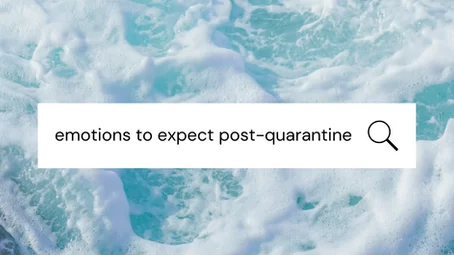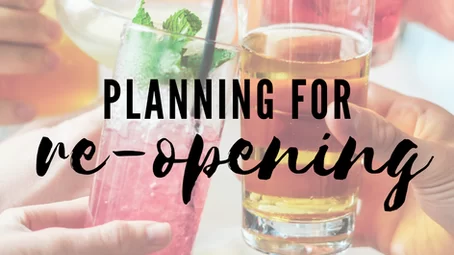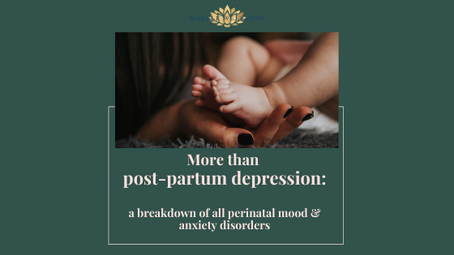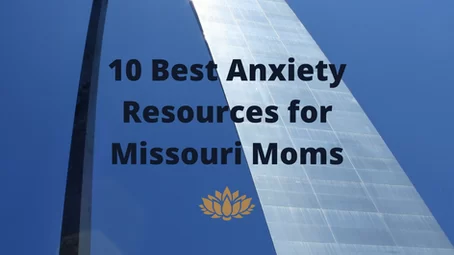Hello everyone! How are we? Tired of all of this? Ready to be done with it? Not sure how to move forward? A little anxious or overwhelmed? I hear you!
As many states across the US have already opened and even more continue to do so, there was one more emotional thing (well, one more for now; we will see what else comes up as we navigate this together!) I want to address a little ahead of the full re-opening. And that thing is helping you be aware of the potential flare-up of two emotions in this transition period. (If you didn’t catch my recent blog on preparing for re-opening, you can find it here: https://www.marblewellness.com/post/how-to-emotionally-prepare-for-re-opening-after-covid-19-quarantine)
I believe advanced knowledge of what may happen, especially on an emotional front, can be so helpful when it comes to many things, but especially mental health. No one likes to be in a state of negative emotions, but when those suckers come as a surprise, it can feel even harder to manage. Alternatively, a little understanding and preparation for what may happen can increase tolerance of negative emotions, lessen the intensity or duration of them, and even allow you to problem-solve their management better, because you’re not so busy trying to figure out why they came up for you.
So what are these two emotions that I want to prepare you for before we all move into re-opening? The answers may surprise some of you.
The first is…actually missing quarantine. I know, I know. That sounds absurd. And on its face, I agree. But absurdity does not negate emotional possibility.
There are many reasons you may miss quarantine, if only just a little bit. Even in its difficulty, there was a quiet, a discarding of non-priorities, of commitments we didn’t want to fill anyway, the hassle of errands and traffic (even if we miss it!), the absence of the feeling of “missing out.” Many people got time back, probably got outside more (even if you are SO over your walking route), and perhaps set up new habits or routines they are unsure they’ll maintain in post-quarantine life.
I know for sure there are some people who will think they didn’t quite get as much done in quarantine as they had hoped and wish they had just had a bit more time (even if the other half of them is screaming to get back out). Who know they’ll miss their family as the kids maybe head back to daycare and they head back into the office. Who really like how much they’ve been connecting on FaceTime and Zoom happy hours with friends and family out of state—and even though there are echoes of “we should keep this up even when life goes back to it’s new normal!” know that it won’t get maintained with the same frequency as schedules get back to being filled with people that live in the same Metro area.
There are people who nurtured hobbies in an effort to stay sane and who might miss the time they get to spend gardening, learning Tik Tok dances, or reading even as they are also thrilled to get those returns made, donations dropped off, and head to an in-person birthday party. There are people who have been shocked that they’ve been able to cook for themselves and appreciate aspects of it, even as they are overjoyed to return to restaurant patios at the appropriate socially distanced 6 ft.

All of this makes sense to me. And I want you to know it’s okay to feel this way and to be a little prepared if you feel a pang of longing for the life you’re about to wave goodbye to — whether this month or in three months. A little at a time or a lot at time.
You see, for the large majority of you reading this, quarantine has been incredibly hard. Challenging. Even exhausting. And as you’ve worked to make sense of that, you’ve also worked really hard at this: making yourself safe and making yourself comfortable. And spaces, daily routines, and even patterns of thinking contribute deeply to that sense of safety. And those spaces, routines, and patterns of thinking are about to evolve-again.
There’s become a familiarity with our quarantine life. No matter how chaotic (little kids under foot!) it is, or isolating (new baby!) it feels, or mind-numblingly boring (retired now without the fun social time), it’s become your predictable and safe place. And we — meaning humans — always crave what’s been familiar and safe.
So if you feel that pang, or catch yourself feeling a little sad, or become aware of a thought — remember: it’s normal! It’s okay! And it even makes sense!
Okay, the second emotion I want to prepare you for is equally important because I almost think this one might catch you more off-guard unless you’re really familiar already with the concept & possibility of this happening.
This one is….the post-quarantine adrenaline exhaustion/let-down. This one will likely hit a few weeks, maybe even a month or two, after your life has returned to as close to normal as it’s going to get. It will likely happen with just an overwhelming sense of exhaustion that comes seemingly out of nowhere — like a wave that washes over you. But it’ll be in the middle of an otherwise normal, even happy and energetic day.

And it may also hit you in the form of big tears in the shower, or while driving somewhere, or while performing some other mundane task. (I also want those of you with kiddos to note this as it may happen to them as well. And you’ll want to have an idea of what it is so you know how to talk them through it.)
This too will be incredibly normal when it happens.
See, what happens is, when our body and brain are responding to a threat (in this case, the novel coronavirus) it heightens our production of adrenaline, so our muscles, reaction time, etc are primed and ready to go; they’re warmed up so they can quickly and efficiently take action to keep us safe.
After our brains and bodies deem that we are out of danger, and rooted back in safety, the adrenaline plummets — it does this quickly and it goes below normal levels. This means we are left in a state of exhaustion. In some instances, we feel sadness, or even symptoms of depression, for a bit. This is where the tears might also come in — it’s a burst of relief and recovery from the body that “it’s over.”
Some of you may have experienced this in other intense instances in your lives. For example, if you are in a car accident, and you manage the exchange of information just fine, get home okay, even eat dinner pretty normally, and then head to bed and suddenly breakdown — it’s your adrenaline let-down. Maybe you were a NICU mom and you interacted with medical staff no problem while you were at the hospital and kept things organized and moving. Then you return home with your baby and a few days later, you find yourself weeping. Sometimes, it happens not even after a negatively charged event. It may be after a college reunion where you gathered with old friends you hadn’t seen in a long time; for kids and teens, it may happen after a tournament weekend where they made it to the finals.
The point is, after being primed for action for so long, the body releases all of that energy it’s been holding onto, and that sharp shift is felt. Hard! Our bodies need to experience that release so I encourage you to give yourself space to be really tired for a few days. To let out that sob. To seek comfort and closeness to friends and families. There is nothing wrong with expressing this and there is no danger to letting yourself feel it.
(Please note: if your symptoms don’t resolve after a few days, it might be a good idea to call a therapist. You have maybe been reading about the idea of “collective trauma” during this time and the effect on our mental health of this black swan event. I will write more about this later, but there could be a delayed onset of mental health symptoms, particularly anxiety and depression — and in some cases, PTSD — that may appear in the “return to a new normal.” That is expected from mental health professionals and we are all here for you and ready to walk with you on your journey back to health.)
You’ve navigated quarantine. I’m cheering you on as you also navigate post-quarantine!
Talk to you soon!
Start Therapy for Mental Health in St. Louis
If you live in St. Louis and are ready to improve your mental health, we are here to help.
Contact Us!

Additional Counseling Services at Marble Wellness in St. Louis, MO and Chicago, IL
Counseling services designed to help set you on a path of living a more fulfilled, calm, and happy life.
St. Louis
Our St. Louis team of therapists have a variety of training backgrounds and areas of expertise. We specialize in anxiety, depression, grief, chronic illness, therapy for men, couples, and maternal overwhelm. We can also help new moms with various postpartum concerns, moms in the thick of parenting, and moms with teens. We can also chat from wherever you are in the state with online therapy in Missouri and online therapy in Illinois. No matter where you are in your journey, we would love to support you.
Chicago
Our Chicago team of therapists offer a wide range of mental health services to help our clients through the different challenges and hurdles in their life. In addition to anxiety, depression, grief, therapy for men, and maternal overwhelm, we are specialized in professional burnout, therapy for breakups, and love partnering with working moms.



